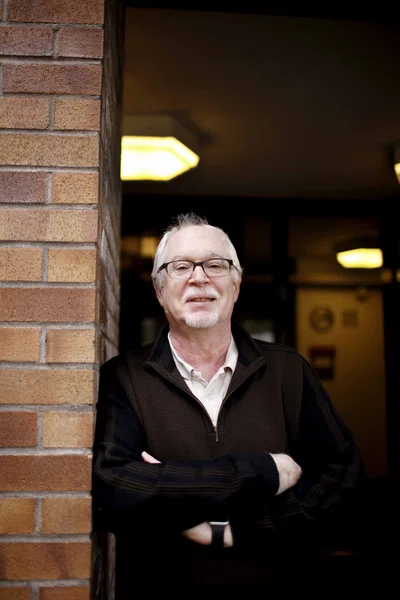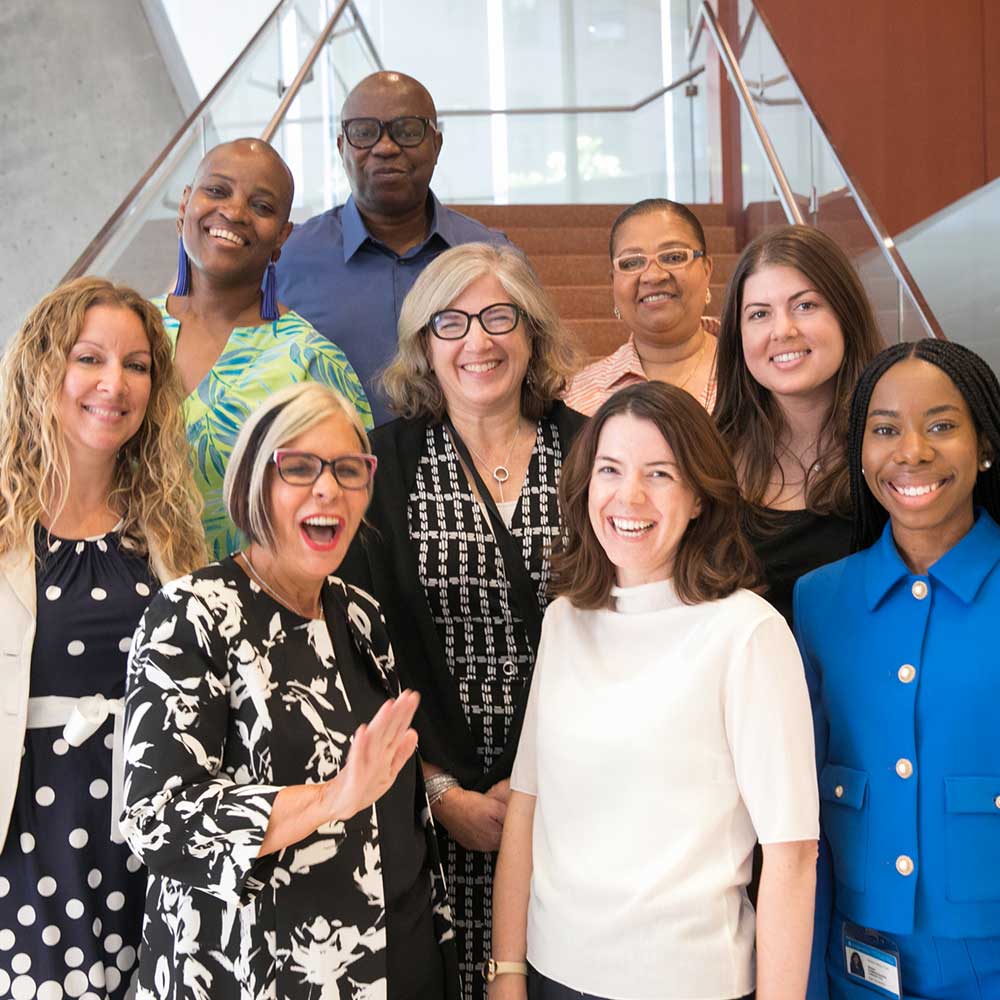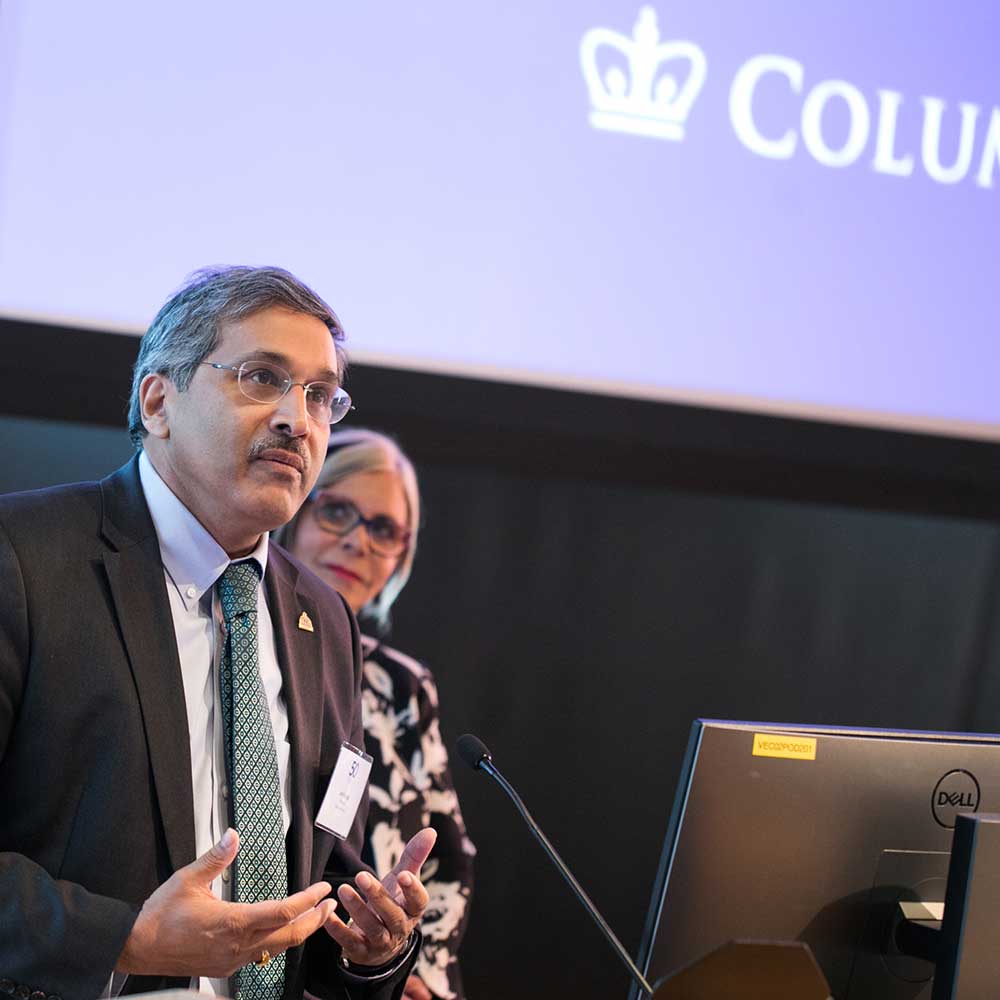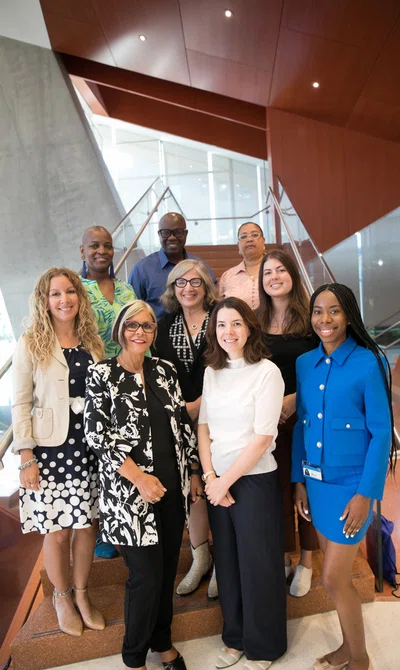
“Over the decades, my parents' best friends were doctors at Columbia, and the close relationship they had with doctors across disciplines, working in many different types of cancer, drove their philanthropy. It meant so much to them to connect with the doctors and understand the work they were doing."
—Ron Irving, PhD
Professor Emeritus, University of Washington
Son of the late Herbert and Florence Irving
VIEW PHOTO GALLERY: 50TH
ANNIVERSARY SYMPOSIUM
Celebrating 50 Years of NCI Designation and Beyond
“We can [reduce cancer mortality] together. It needs support from Congress, it needs the bright and brilliant scientists in this room, the doctors who are taking care of patients and great leadership…and all together, we can make a real difference. It’s an exciting time in cancer research.”
—Norman “Ned” Sharpless, MD
Former director of the National Cancer Institute (in his speech, referencing the Biden Administration’s revitalization of Cancer Moonshot initiative)
The Herbert Irving Comprehensive Cancer Center (HICCC) commemorated its 50-year milestone of National Cancer Institute (NCI) designation with a special symposium, “New Frontiers in Cancer Research and Care: The Next 50 years.” The Sept. 15 symposium, held in person at Columbia University Vagelos Education Center and via live stream to more than 600 registered guests, featured keynote addresses by Margaret Foti, PhD, MD, chief executive officer at the American Association for Cancer Research, and Norman “Ned” Sharpless, MD, former director of the NCI, along with a series of talks from leading members of the cancer center about the future of cancer research and care at Columbia.
Dr. Sharpless touched on the history of NCI-designated cancer centers and discussed the initiation of the Cancer Moonshot and future direction, illustrating the scientific progress that has been made to solve cancer. In her remarks, Dr. Foti underscored the importance of innovation in research and patient care, saluting some of the remarkable scientists and clinicians that have shaped Columbia's cancer center through the decades.
The symposium was divided into two sessions. The first focused on exciting innovation advancing cancer research and treatment at Columbia. HICCC members shared their research in data science, artificial intelligence, and microfluidics, as well as explored how newer technologies and innovative approaches to cancer could have an impact on how cancer is studied and treated in the future.
The second session covered the topic of intercepting cancer in our community, with ideas by Columbia faculty that go beyond the traditional strategies of cancer risk reduction, spanning genetics for prevention, racial inequities in cancer, and social and environmental determinants of health. This session showcased ideas to end cancer before it even starts on both an individual level and population level.
The festive day brought together a community of Columbia clinicians and researchers, all devoted to advancing cancer research and uncovering newer and more effective therapies for all.
Celebrating 50 Years of NCI Designation and Beyond
The Herbert Irving Comprehensive Cancer Center (HICCC) commemorated its 50-year milestone of National Cancer Institute (NCI) designation with a special symposium, “New Frontiers in Cancer Research and Care: The Next 50 years.” The Sept. 15 symposium, held in person at Columbia University Vagelos Education Center and via live stream to more than 600 registered guests, featured keynote addresses by Margaret Foti, PhD, MD, chief executive officer at the American Association for Cancer Research, and Norman “Ned” Sharpless, MD, former director of the NCI, along with a series of talks from leading members of the cancer center about the future of cancer research and care at Columbia.
Dr. Sharpless touched on the history of NCI-designated cancer centers and discussed the initiation of the Cancer Moonshot and future direction, illustrating the scientific progress that has been made to solve cancer. In her remarks, Dr. Foti underscored the importance of innovation in research and patient care, saluting some of the remarkable scientists and clinicians that have shaped Columbia's cancer center through the decades.
The symposium was divided into two sessions. The first focused on exciting innovation advancing cancer research and treatment at Columbia. HICCC members shared their research in data science, artificial intelligence, and microfluidics, as well as explored how newer technologies and innovative approaches to cancer could have an impact on how cancer is studied and treated in the future.
The second session covered the topic of intercepting cancer in our community, with ideas by Columbia faculty that go beyond the traditional strategies of cancer risk reduction, spanning genetics for prevention, racial inequities in cancer, and social and environmental determinants of health. This session showcased ideas to end cancer before it even starts on both an individual level and population level.
The festive day brought together a community of Columbia clinicians and researchers, all devoted to advancing cancer research and uncovering newer and more effective therapies for all.
“We can [reduce cancer mortality] together. It needs support from Congress, it needs the bright and brilliant scientists in this room, the doctors who are taking care of patients and great leadership…and all together, we can make a real difference. It’s an exciting time in cancer research.”
—Norman “Ned” Sharpless, MD
Former director of the National Cancer Institute (in his speech, referencing the Biden Administration’s revitalization of Cancer Moonshot initiative)
“Over the decades, my parents' best friends were doctors at Columbia, and the close relationship they had with doctors across disciplines, working in many different types of cancer, drove their philanthropy. It meant so much to them to connect with the doctors and understand the work they were doing."
—Ron Irving, PhD
Professor Emeritus, University of Washington
Son of the late Herbert and Florence Irving





